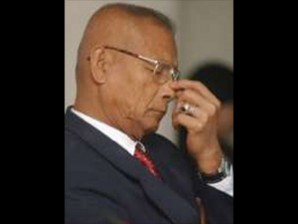House bills seek revival of compulsory military training for college students

Muntinlupa Representative Rodolfo Biazon. INQUIRER FILE PHOTO
MANILA, Philippines—With tensions mounting over regional territorial disputes, some lawmakers have revived proposals to make the Reserve Officers Training Corps mandatory again for college students, so that the country would have a pool of capable officers to provide military service should the need arise.
The House Committee on National Defense and Security is scheduled to tackle the proposal during the first week of December, but the matter could turn out to be a contentious one as a counter-proposal to abolish the ROTC is also to be taken up.
The ROTC program was made optional with the passage of the National Service Training Program (NSTP) Act of 2001. This came amid intensified calls for the abolition of the ROTC following the killing of student Mark Welson Chua, who had exposed corruption in the program.
There are at least four bills seeking to reinstate mandatory ROTC for students in colleges and universities.
One of the authors, Cavite Representative Francis Gerard Abaya, said in the introduction to his bill that the constitutional provision allowing the government to call upon the people to defend the state and require them to render military or civil service has become more true and timely because of recent events in which the country may have to defend its territory from incursions by foreign powers.
Article continues after this advertisementBut Abaya said this mandate has become hard to implement because the ROTC program was no longer mandatory. There are few students enrolled in the ROTC program, he said.
Article continues after this advertisementBecause of this, the country may not have enough able people to call upon when it needs to defend itself, he warned.
“At the rate that the number of college students under the NSTP prefer other forms of civic duty over ROTC, it is not unimaginable that our country will not have sufficient reserve officers to call to render military services when warranted by national circumstances, whether as response to any national security threat or national emergency,” he said in his explanatory note to the bill.
Abaya’s bill states that mandatory ROTC should be part of the curriculum of all baccalaureate courses as well as two-year vocational or technical courses, and would be a requirement before graduation for all male students in public and private colleges and universities.
A similar bill was authored by Muntinlupa Rep. Rodolfo Biazon, a former Armed Forces chief, who said that with ROTC being optional, the recruitment and development of a military reserve component has been adversely affected.
Citing experts, Biazon said the concept of a citizen armed force as envisioned by the Constitution would not be realized if the status quo continued. His measure, though, seeks mandatory ROTC only for students of state colleges and universities.
“Since the state subsidizes the education of these students, it is but proper that it should be able to primarily depend on them for its defense,” he said.
But clashing with the mandatory ROTC bills is the measure filed by Kabataan Rep. Terry Ridon, who said the program has no place in civilian educational institutions.
Ridon’s bill seeks to abolish the ROTC altogether and expand the social and civic service programs under the NSTP.
In his explanatory note, he said the ROTC “was proven irrelevant in fostering discipline, social responsibility, and patriotism in the youth.”
Instead, he said, it bred corruption, bribery, physical and verbal violence, and other abuses, and became a burden to students.
He also said that while the people are duty bound to defend the state, “providing military training, institutional or material support, should not be the responsibility of civilian educational institutions.”
The ROTC would be inconsistent with international humanitarian law and the law protecting children from abuse, exploitation and discrimination, he added.
Ridon also contended that the military culture propagated by the ROTC program clashes with academic freedom, since military training imposes strict obedience to authority and the chain of command.
“Schools are places for opening minds to new ideas, critical and independent thinking,” he said.
According to him, the ROTC program has also bred machismo and sexism, and imposes unnecessary reverence for the military culture.
Given this, it’s the civic component of the NSTP that should be expanded, Ridon said.
“What we need as a nation today is not an army of young men and women trained in the ways of the military, but an army of volunteers and advocates ready to serve and uphold the needs of their communities and the nation as a whole,” he said.